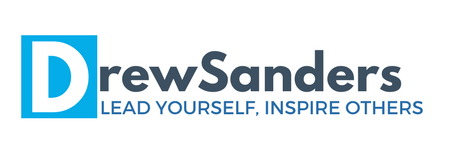Right next to having a good understanding of culture is developing your own plan for being resilient and developing that trait in those around you.
Leaders are those people who make sure the team gets a win, not just themselves. This requires patience and purpose.
Resiliency
Are you resilient? Why? Do you know enough about your own resiliency process to pass it on to a teammate or a loved one? When presented with the first question, we find many people will answer yes, when asked the latter two, many, including us, start to stammer. Our research into this topic showed that most of us attribute the characteristics of grit, determination, and pluck as God given gifts that you either have or you don’t. Worse yet, they are often portrayed as those things you build while taking a beat down of rejection, either socially or on a sports field. This struck us as odd. While rejection may help you build a nice pile of coal in your stomach to use for building your own fire, the output of stress on your system and the smell of your smoky exhaust doesn’t really make us want to be around that person. Think Russell Crowe yelling at the crowd in Gladiator, “ARE YOU NOT ENTERTAINED”. He may be interesting to watch on TV, but do you want have lunch with that person or tell your son or daughter this is the pathway to building resiliency?
It turns out as in most social science areas, research has been funded to study the extremes on the human curve, which then affords us in the middle a few nuggets from which to learn. Dr. Wayne Hammond from the University of Calgary has been working with segments of the population with severe disabilities, and senior citizens recovering from the loss of a spouse all with an eye for helping them adapt and build a resilient foundation. In recent years he has worked with the Province of Alberta to create a mentor program (click to view) to assist family members of all ages to engage in a healthy way to mentor. (It is nice to think we may have more tools in our belt than “that’s OK Jimmy, suck it up, it’s good for you.) Recently Hammond has brought to market an offering for parents called Strengths Based Parenting which allows parents to screen for resiliency in their children and then gives them an improvement process to follow. You can also take a look at a short white paper and let us know your thoughts.
Our interest in this topic is a combination of helping our own children develop and unfold into functioning adults, and in response to a disturbing trend with the flagging performance of young adults in the ages of 19 to 25. With respects to the six year sub-cohort of the Millennials it would be hard to suggest they haven’t been praised enough. So where is the grit, where is the drive, where is the joy in doing something hard? We don’t have the answers, but are charged with finding the answers as our clients work places are filling up with young professionals, and someone else’s problem has just become our problem. If it takes a village then let’s form one and team up.





